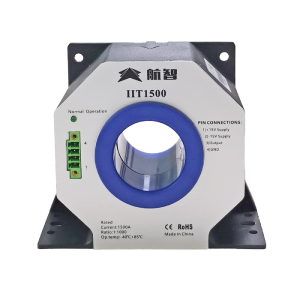
Table of Contents
Current transducers are amazing gadgets essential to many industries, including manufacturing, healthcare, and the automobile and aerospace sectors. These adaptable devices are crucial for various applications because they can transform one type of energy into another. This article explores current transducers’ many advantages and their effects on contemporary technology.
1. Measurement Precision
Reaching high levels of measurement precision is one of the main benefits of utilizing a transducer. Pressure, temperature, and displacement are examples of physical characteristics that transducers are used to transform into electrical signals.
High-accuracy measurements are possible thanks to the ease with which these electrical impulses may be collected and evaluated. This accuracy is essential in medical diagnosis, laboratory research, and manufacturing quality control, where even the smallest mistake can have serious repercussions.
2. Versatility
Many different transducers can change a certain physical property into an electrical signal. Due to its adaptability, transducers can be made to match the needs of various applications specifically.
Transducers, for instance, may measure force, strain, temperature, pressure, and more. This versatility makes the current transducer an invaluable tool in various sectors by enabling scientists and engineers to select the right one for their particular requirements.
3. Real-time Data
Transducers are useful when timely information is crucial since they give real-time data. Transducers, for example, are utilized in medical monitoring equipment in the healthcare industry to measure vital signs such as oxygen saturation, blood pressure, and heart rate. This facilitates swift decision-making for healthcare practitioners.
Transducers serve a similar purpose in-vehicle systems by giving real-time input for safety and driver assistance features.
4. Reduced Maintenance
One major benefit of transducers is that they require less maintenance. Transducers have no moving parts that can break or deteriorate, unlike mechanical instruments that may wear out over time.
Longer operational lifetimes and cheaper maintenance are the results of this. This results in reduced downtime and increased productivity in industrial settings, which lowers total operating costs.
5. Miniaturization
Transducers have become smaller due to technological advancements, making them appropriate for applications with limited space. Tiny transducers are frequently found in portable electronics like smartphones, essential for features like accelerometers and touchscreens.
In addition, these transducers’ small size makes them perfect for applications requiring non-intrusive measurements, such as medical implants.
6. Energy Efficiency
Transducers have a reputation for being energy-efficient. Their ability to function and produce electrical signals with little power consumption is crucial for battery-powered devices and remote monitoring systems. This efficiency enables lower energy usage and longer battery life in various applications, including wireless sensors and space exploration equipment.
7. Safety
Transducers make real-time monitoring and control systems possible, which improves safety in a variety of sectors. Transducers, for instance, are used in the aviation sector to measure a range of characteristics, such as airspeed and altitude, to guarantee passenger and aircraft safety.
Transducers are used in the petroleum sector to monitor and regulate the temperature and pressure in oil wells, averting mishaps and environmental catastrophes. Their capacity to deliver data and feedback instantly aids in mitigating potential risks and dangers.
8. Automation and Control
Automation and control systems require transducers. They are employed in production to monitor and regulate procedures to guarantee constant product quality and reduce waste. Transducers are also essential to the functioning of contemporary robotics since they offer the feedback required for accurate control and movement.
9. Research and Development
Transducers are essential instruments for research and development. They provide very accurate experimentation and data collection by scientists and engineers, which aids in creating novel technologies and breakthroughs. Transducers are at the heart of R&D activities, whether testing new medical devices or examining how materials behave in harsh environments.
The Transformative Power of Current Transducers
Current transducers are essential instruments for research and development. They provide very accurate experimentation and data collection by scientists and engineers, which aids in creating novel technologies and breakthroughs. Transducers are at the heart of R&D activities, whether testing new medical devices or examining how materials behave in harsh environments.
About Hangzhi
Shenzhen Hangzhi Precision Electronics Co., Ltd. is a technology-leading enterprise dedicated to the research and development, production, sales and solution customization of high-precision current sensors, voltage sensors and high-precision electrical measuring instruments. We strive to build a well-known brand of fluxgate precision current sensors and precision electrical measuring instruments in the DC field, and strive to develop into an internationally leading leader in precision electronics in the field of DC systems.
